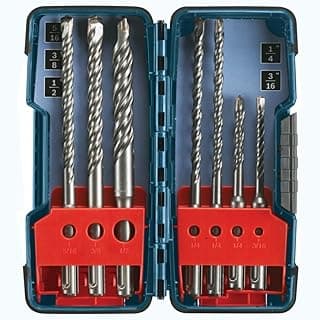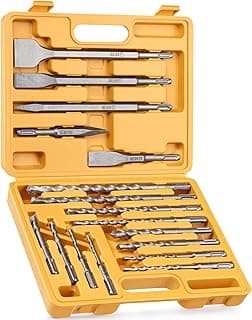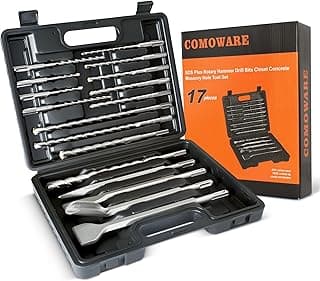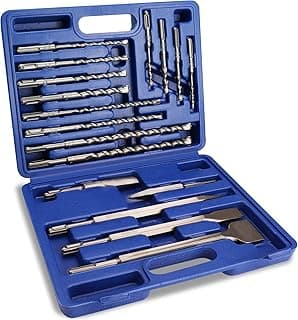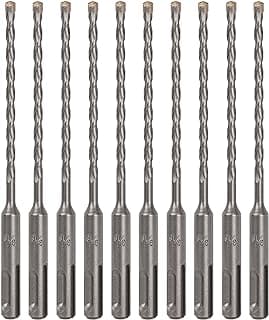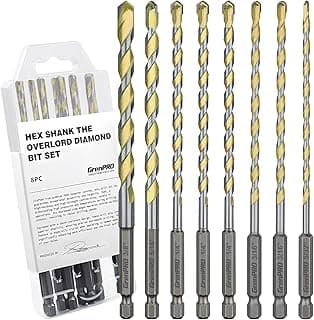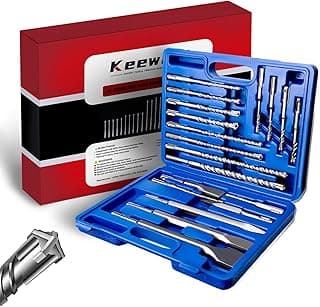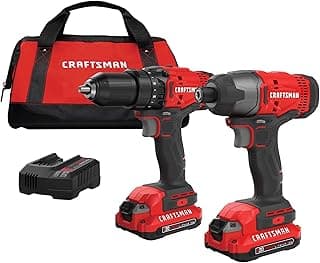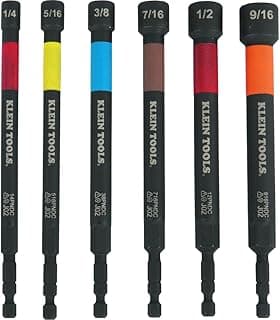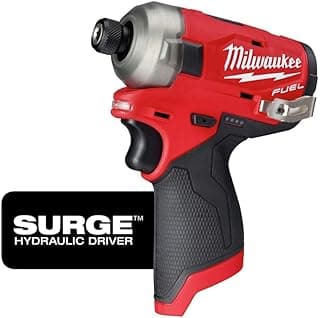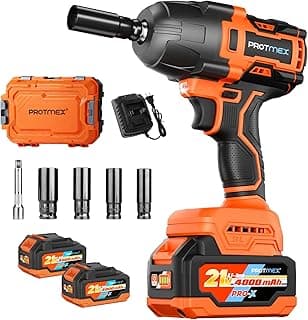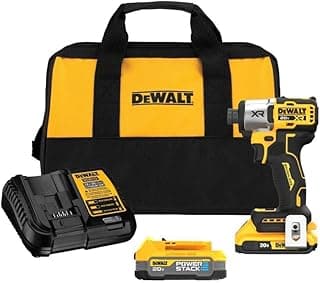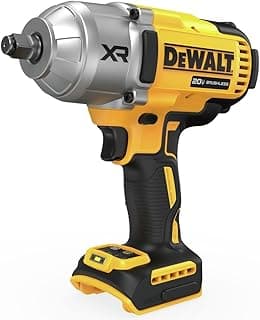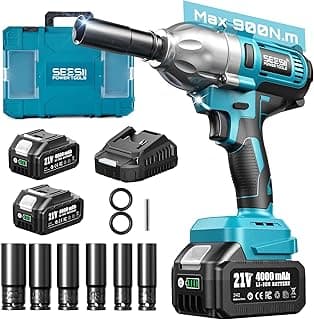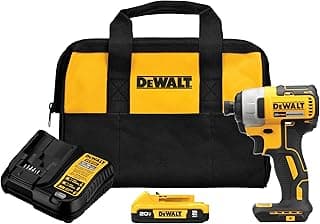Top Picks
Best Durability: DEWALT Masonry Drill Bit Set
The DEWALT Masonry Drill Bit Set (DW5207) features a two-cutter carbide tip that enhances surface contact and extends bit life. Its four-flute design efficiently clears debris during drilling, ensuring smoother performance and faster drilling speed. The three-flat shank design helps prevent slipping in the chuck, offering better control and precision when working on concrete, brick, or block surfaces.
Professionals and DIY users appreciate this DEWALT set for its balance of speed, durability, and accuracy. The carbide tips perform well in tough masonry materials, while the design prevents common issues like overheating or slipping. However, users who frequently work with reinforced concrete may find it less suitable for extremely heavy-duty jobs.
The DEWALT DW5207 set provides dependable performance and value for everyday masonry drilling. It’s a durable, well-designed choice for homeowners and contractors seeking consistent results in concrete and block applications.
Best Speed: Bosch HCK001 7 pc. SDS-Plus® Bulldog™ Rotary Hammer Bit Set
The Bosch HCK001 Bulldog Rotary Hammer Bit Set is engineered for high efficiency and long life, thanks to its optimized brazing and hardening process. Bosch’s proprietary carbide tips deliver superior durability under heavy loads, making them ideal for demanding masonry and concrete applications. The set includes seven SDS-Plus bits in multiple sizes, providing versatility for different drilling needs. A sturdy Brute Tough case ensures convenient storage and easy transport.
Professionals value the Bosch Bulldog set for its impressive drilling speed and consistent toughness in concrete and stone. Users note that it handles high-torque rotary hammers with minimal wear, maintaining precision and sharpness after repeated use. However, it may be overbuilt for lighter tools or occasional DIY projects.
The Bosch HCK001 set stands out for its speed, reliability, and professional-grade construction. It offers excellent value for contractors and serious users who demand long-lasting, high-performance bits for concrete drilling.
Best DIY Set: 17-Piece SDS Plus Rotary Hammer Drill Bits and Chisel Set
This 17-Piece SDS Plus Rotary Hammer Drill Bit and Chisel Set is built with YG8C carbide tips for superior hardness and wear resistance. Each bit and chisel is heat-treated for impact strength and long life, while the sandblasted surface adds rust protection. The set includes multiple drill bit sizes, two pointed chisels, two flat chisels, and one tile chisel, providing excellent versatility for home improvement, tile removal, or light demolition. The U-shaped flute design ensures efficient dust removal and cooler operation. Compatible with most SDS Plus rotary hammers, it offers reliable performance for drilling and chiseling in concrete, brick, and stone.
DIY users and homeowners find this set to be a practical and cost-effective option for everyday masonry work. The carbide tips perform well in medium-intensity tasks, while the variety of bits and chisels covers most common drilling and renovation needs. However, professionals working on heavy-duty concrete might prefer a more robust, industrial-grade option.
This 17-piece SDS Plus set delivers solid durability, versatility, and precision for home projects and light construction tasks. It’s an excellent choice for DIY enthusiasts seeking a dependable, budget-friendly masonry drill and chisel set.
FAQs
Which drill bit should I use for concrete?
When drilling into concrete, the best choice is a carbide-tipped masonry bit. These bits are specifically engineered to handle the hardness and density of concrete, brick, and stone. The carbide tip provides exceptional heat resistance and maintains its sharp edge even under heavy pressure. For deeper or larger holes, SDS or SDS Plus bits are recommended because they fit into rotary hammer drills that deliver more impact force. Always use your drill’s hammer setting when working with concrete—this combination of rotation and hammering action helps break through the material efficiently.
What is better, SDS or SDS Plus drill?
Both SDS and SDS Plus drills are designed for hammer drilling into concrete, but they differ mainly in size and power. SDS Plus drills use 10mm shanks and are ideal for light to medium-duty applications, such as installing anchors or small holes in concrete and brick. SDS (also known as SDS Max) drills have larger shanks—typically 18mm—and are built for heavy-duty work like chipping, demolition, or deep drilling. If you’re a homeowner or DIY user, SDS Plus is usually sufficient. However, for professional or industrial tasks, SDS Max offers more impact energy and durability.
Is cobalt or titanium a better drill bit?
It depends on the material you’re drilling. Cobalt drill bits are made from a blend of high-speed steel with cobalt alloy, making them extremely durable and resistant to heat. They’re best for drilling into metal, especially hardened steel or stainless steel. Titanium drill bits, on the other hand, are high-speed steel bits coated with titanium nitride. They stay sharper longer than standard steel bits and are great for wood, plastic, and soft metals, but their coating can wear off over time. For concrete, neither cobalt nor titanium is ideal—carbide-tipped masonry bits are far superior for that purpose.
Is a 118 or 135 drill bit better?
The difference between 118-degree and 135-degree drill bits lies in their tip angle and cutting precision. A 118-degree bit has a sharper point, making it perfect for softer materials like wood or plastic because it centers easily. A 135-degree split-point bit has a flatter tip, which reduces walking and provides better control on hard materials like metal. For concrete, though, the tip angle isn’t as relevant since masonry bits rely on impact force rather than cutting edges. If you frequently switch between materials, having both types ensures optimal performance across different projects.


